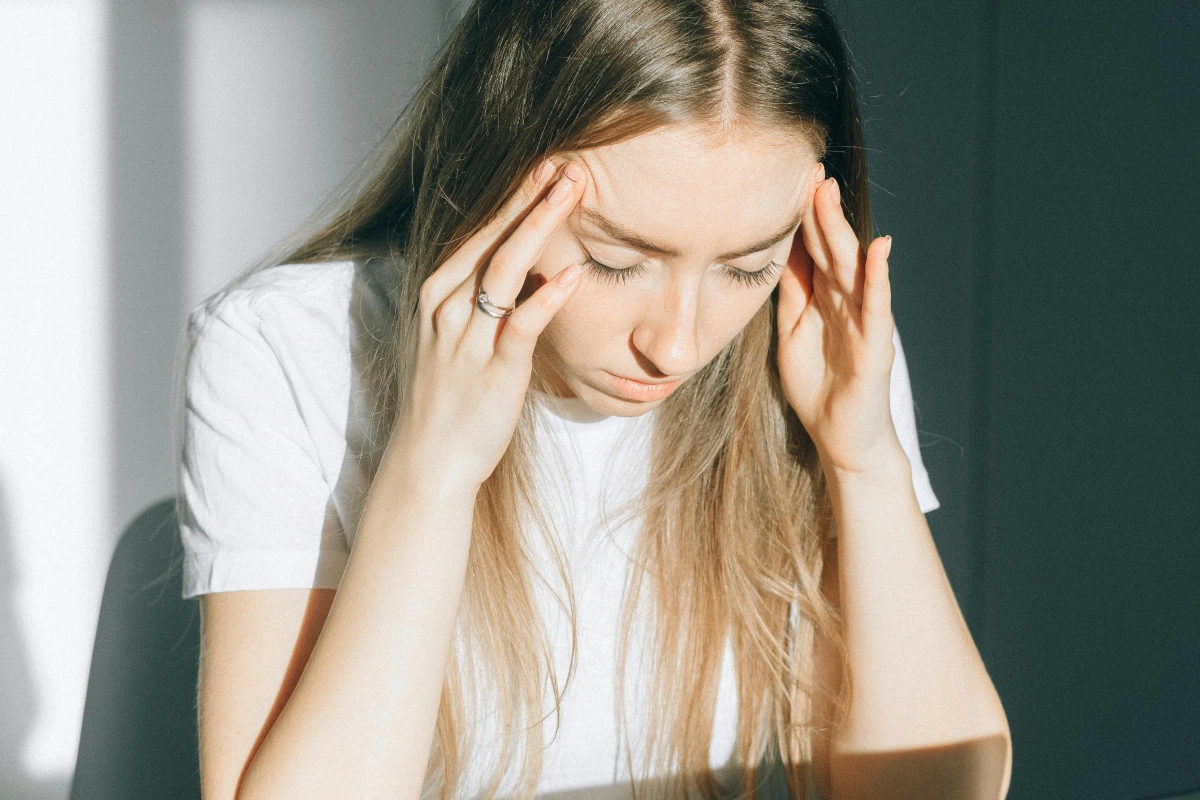Home - Major Depressive Disorder (MDD) Treatment
Major Depressive Disorder (MDD) Treatment in San Diego
Major Depressive Disorder (MDD) is a mood disorder characterized by persistent feelings of sadness, a loss of interest in activities, and a profound impact on daily functioning. While it can occur at any age, it is especially important to recognize that MDD often requires careful attention and consistent treatment to manage its effects on emotional well-being, relationships, and overall quality of life. At Park Mental Health, we deeply understand the challenges of living with MDD. Therefore, we are committed to providing compassionate and effective care thoughtfully tailored to meet your unique needs at every stage of your journey.
What is major depressive disorder (MDD)?
Major Depressive Disorder is persistent, severe depression impacting functioning.
Major Depressive Disorder (MDD), commonly known as clinical depression, is a serious and pervasive mental health condition that affects millions of people worldwide. Unlike transient feelings of sadness that we all experience from time to time, MDD involves persistent feelings of hopelessness, sadness, and a lack of interest or pleasure in daily activities. Moreover, this condition significantly impacts a person’s ability to function effectively at work, in relationships, and throughout various aspects of life.
Importantly, MDD is not something someone can simply “snap out of” or “get over” alone. It is a deep issue that affects emotional, physical, and social well-being. Without proper treatment and support, MDD can lead to serious consequences. These may include substance use disorders, self-harm, and, in extreme cases, suicide. However, the good news is that Major Depressive Disorder is treatable. With the right approach, including professional care and support, individuals can regain control of their lives. Most importantly, they can find hope again.
Statistics show that approximately 17.3 million adults in the U.S. have experienced at least one major depressive episode. Moreover, many of these individuals also face co-occurring conditions such as anxiety, substance use disorders, or PTSD.
Contact Park Mental Health today to start your journey toward healing and rediscovering joy in your life. Let us help you break free from the grip of major depressive disorder and reclaim the happiness you deserve.
Warning signs of major depressive disorder
If you or someone you know is struggling with depression, it’s crucial to recognize the warning signs early. These signs can include emotional symptoms, like persistent sadness or hopelessness. Behavioral changes, such as withdrawal from social activities, and physical symptoms, like fatigue or appetite changes, are also common. Together, these symptoms can impact daily life, relationships, and well-being. Understanding these indicators is the first step toward seeking help and support.
Mental symptoms to look out for
- Persistent sadness
- Hopelessness
- Irritability
- Guilt
- Worthlessness
- Low motivation
- Indecisiveness
- Concentration issues
- Memory problems
- Anxiety
- Emotional numbness
- Suicidal thoughts
Physical signs of major depressive disorder
- Fatigue
- Appetite changes
- Weight fluctuations
- Sleep disturbances
- Headaches
- Muscle pain
- Digestive issues
- Low energy
- Slowed movements
- Restlessness
- Week immune response
- Chronic aches

Types of major depressive disorder
Depression manifests in various forms, including major depressive disorder, persistent depressive disorder, seasonal affective disorder, and postpartum depression, each with distinct symptoms and underlying causes. Therefore, accurately identifying the specific type of depression is essential for proper diagnosis and effective treatment. For instance, while some types may respond best to medication, others benefit from therapy or lifestyle changes. Consequently, a tailored approach improves outcomes, promotes recovery, and empowers individuals to regain control over their mental health. If these symptoms sound familiar, it’s crucial to seek help. Park Mental Health in San Diego is here to provide compassionate, expert care tailored to your unique needs.
Recurrent major depression
Recurrent Major Depression is characterized by repeated episodes of depression that tend to come and go over time, often interspersed with periods of relatively normal mood. Specifically, each depressive episode typically lasts for at least two weeks; however, it can persist for several months or even longer in some cases. Moreover, a key differentiator of this condition is the presence of distinct depressive episodes, which are clearly separated by intervals of emotional stability, thereby providing temporary relief.
Persistent depressive disorder (dysthymia)
This chronic form of depression involves less intense symptoms; however, it can last for years. People with Persistent Depressive Disorder often experience a pervasive low mood, which is less acute but continues over a long period. Additionally, the key differentiator of this condition is the long-term, ongoing feeling of depression, coupled with fewer but persistent symptoms that can impact daily life consistently. Consequently, this form of depression may be harder to recognize due to its more subtle nature.
Seasonal affective disorder (SAD)
Seasonal Affective Disorder typically occurs at specific times of the year, usually during the winter months when sunlight is scarce. People suffering from SAD often experience symptoms of depression that tend to improve during sunnier seasons or with the use of light therapy. Consequently, the key differentiator of this condition is its depressive symptoms, which are directly linked to the changing seasons, particularly during months with less sunlight. Therefore, recognizing the seasonal pattern is essential for accurate diagnosis and effective treatment.
Psychotic depression
This is a severe form of depression that includes psychotic symptoms, such as hallucinations or delusions, alongside traditional depressive symptoms. As a result, the key differentiator of this condition is the presence of psychosis, which may involve delusions or hallucinations in addition to the typical symptoms of depression. Therefore, recognizing these psychotic features is essential for accurate diagnosis and appropriate treatment, ensuring individuals receive the comprehensive care they need.
Postpartum depression
This type of depression affects women after childbirth, typically within the first few weeks or months. Hormonal changes after giving birth, along with emotional and physical adjustments, contribute to the onset of this form of depression. As a result, the key differentiator of postpartum depression is its occurrence after childbirth, ois ften linked to significant hormonal and emotional shifts. Therefore, recognizing this connection is crucial for timely intervention and effective support for new mothers during this challenging period.
Comorbid depression
Comorbid depression refers to depression that co-occurs alongside other mental health disorders, such as anxiety, PTSD, or substance use disorders. As a result, the key differentiator of comorbid depression is the simultaneous presence of depression and other psychiatric conditions. This often requires an integrated treatment approach, as addressing both conditions together can lead to more effective outcomes. Therefore, recognizing the presence of multiple mental health concerns is crucial for developing a comprehensive treatment plan that addresses the complexities of each condition.

How we treat major depressive disorder
At Park Mental Health, we take a holistic, individualized approach to treating Major Depressive Disorder (MDD). Our team of compassionate professionals is committed to helping you regain control of your life through a combination of therapeutic approaches, medication management, and lifestyle adjustments.
Therapeutic approaches to treat MDD
Cognitive-behavioral therapy (CBT)
CBT is a widely used treatment that helps individuals identify negative thought patterns and, in turn, replace them with healthier, more realistic perspectives. By focusing on this shift, the approach not only helps reduce depressive symptoms but also works to prevent relapse. Furthermore, CBT empowers individuals by providing them with tools to better manage their thoughts, leading to lasting changes in how they perceive and react to challenging situations. Consequently, this therapy offers both immediate relief and long-term benefits.
Interpersonal therapy (IPT)
IPT focuses on improving relationships and communication skills, recognizing that interpersonal issues can often contribute to or exacerbate depression. Through this therapy, individuals work through conflicts and, as a result, build stronger, more supportive connections. Moreover, by addressing these relational difficulties, IPT aims to enhance emotional well-being and foster healthier interactions. Consequently, this approach not only alleviates depressive symptoms but also equips individuals with the tools needed to navigate future interpersonal challenges effectively.
Mindfulness-based therapy
Mindfulness techniques help individuals stay present and manage overwhelming emotions. By practicing mindfulness regularly, patients observe their feelings without judgment. This reduces feelings of depression significantly. Moreover, these techniques promote self-awareness and emotional regulation. As a result, mindfulness helps individuals cope with stress and anxiety, fostering long-term emotional stability.
Medication management
Prescription medications, such as SSRIs (Selective Serotonin Reuptake Inhibitors) or SNRIs (Serotonin-Norepinephrine Reuptake Inhibitors), may be prescribed to regulate brain chemicals that significantly affect mood and help manage symptoms. These medications, when combined with other therapeutic approaches, can be an effective part of a comprehensive treatment plan. Furthermore, they are closely monitored by our experienced medical professionals to ensure their effectiveness and minimize any potential side effects. Ultimately, medication plays a crucial role in supporting overall mental health and improving quality of life.
Complementary treatments
In addition to therapy and medication, we offer complementary treatments to enhance overall well-being. These treatments, combined with traditional methods, provide a holistic approach to mental health. They help individuals achieve a more balanced and fulfilling life. Ultimately, they work together to promote lasting recovery and emotional stability.
Lifestyle modifications
Regular exercise, proper nutrition, and good sleep hygiene can significantly improve mood and energy levels. These healthy habits work together to promote overall well-being. They help individuals manage symptoms and prevent relapse. Incorporating them into daily routines creates a strong foundation for long-term mental health and recovery.
Co-occurring condition treatment
If you are also struggling with anxiety, substance use, or other mental health issues, our team can help. We address these underlying concerns and incorporate them into a comprehensive treatment plan. By doing so, we ensure a more holistic and effective approach to your recovery.

Gain freedom from major depressive disorder with Park
If you or a loved one is experiencing the signs and symptoms of Major Depressive Disorder, don’t wait to get help. At Park Mental Health, we are here to support you every step of the way with personalized, evidence-based care. Moreover, we believe in a holistic approach that addresses the mind, body, and spirit for long-lasting recovery. By combining these elements, we ensure a comprehensive treatment plan that is tailored to your unique needs, promoting overall well-being and lasting progress.
Your most frequently asked questions, answered.
What areas do you cover?
Park Mental Health Treatment covers the San Diego, California area. If you are unsure of whether you are near our facility, please either submit an online form or alternatively contact a member of our team today on 866-420-2524.
Do you provide outpatient care?
Yes, Park Mental Health Treatment has the facilities to cater for outpatient care. Alternatively, if you require inpatient care, we also have partnerships with facilities around the San Diego, CA area that can cater for inpatient therapies.
How do I get in contact?
To contact a member of our team, either complete an online form or call us directly on 866-420-2524.